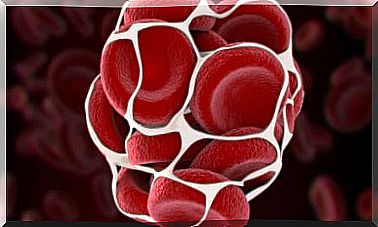What Is The Difference Between Vertigo And Dizziness?
The terms vertigo and dizziness tend to be used interchangeably and to be confused. They are symptoms that are complex to describe and characterize. However, the truth is that they have important differences between them.
In addition, vertigo and dizziness are one of the most frequent reasons for consulting the doctor. Therefore, in this article we explain everything you need to know about both situations and how to differentiate them.
What is a balance disorder?
A balance disorder, as explained by the National Institute on Deafness and Other Communication Disorders , is a medical problem that causes a person to feel wobbly or dizzy. Imbalance itself is defined as the inability to maintain the center of gravity.
The equilibrium system is complex. It involves both the vestibular system (located in the ear) and muscle and joint receptors, as well as sight. All of them capture sensations that inform the central nervous system of the position of the body and its relationship with the environment.
The problem is that the symptoms that occur in these disorders are similar and ambiguous. Hence, there are problems when it comes to differentiating between vertigo and dizziness. The first is defined as the feeling that everything around us rotates or moves abruptly.
However, dizziness refers to the feeling of instability and imbalance. It is a term that is used in a popular way and that, in fact, describes the set of symptoms that are experienced. That is why some publications, such as that of the Duke University Medical Center , affirm that vertigo is a type of dizziness.

What are the differences between vertigo and dizziness?
As we just explained, vertigo and dizziness are not the same. Vertigo refers to problems that occur strictly in the vestibular apparatus. We are going to relate the main differences that they present in terms of causes, symptoms, incidence and treatment.
Differences according to the causes
Dizziness can occur with or without vertigo. In this way, when they are associated, the most common causes are linked to problems in the inner ear.
According to a study published in the Cuban Journal of Medicine, the most frequent origin of vertigo is benign paroxysmal positional. It consists of brief episodes that appear when you change your position.
Other causes of dizziness associated with vertigo are Ménière’s disease and vestibular migraine. On the other hand, dizziness can be due to many other reasons and not associated with this situation. A simple example is when you drink alcohol.
The same is true for many drugs. Sedative medications, such as benzodiazepines, are frequently associated with this feeling of instability. Other drugs, in addition to alcohol, such as marijuana, cause the effect.
Different symptoms
Balance disorders are often accompanied by nausea and vomiting. In addition, it becomes complex to walk or maintain the same posture. The skin turns pale and is cooler. However, vertigo has certain symptoms that differentiate it from dizziness.
People who experience vertigo can suffer from nystagmus. It is a rhythmic and involuntary movement of the eyes that appears during the episode. At the same time, in some patients there is hearing loss.
Incidence of each
As we have seen, dizziness has many causes, so it is a common sensation. The incidence increases with age. It is estimated that around 6% of visits to the doctor are for this reason.
According to the article “Update on the management of vertigo”, the estimated prevalence in the general population is 3 to 7%. The problem when comparing the incidence is that many people do not consult before an episode of dizziness, because they know what the possible cause has been.
Differences between vertigo and dizziness according to treatment
Treatment of vertigo and dizziness depend on the causes. In the case of dizziness, if the reason is identifiable, such as a drug or a drug, the ideal is to avoid the substance. Alternative medications can be sought that do not produce this side effect.
Many types of vertigo, such as Ménière’s disease, are treated with benzodiazepines. However, it is also necessary to learn to cope. To do this, try to rest when an episode appears and avoid movements that aggravate the symptoms.

With vertigo and dizziness, the important thing is to consult
The most important thing to note is that, in the event of any of the aforementioned symptoms, always consult a doctor. In addition, it is interesting to know how to distinguish that the term dizziness is used more to refer to the set of sensations, while vertigo is associated with a vestibular problem.
The complementary methods will be requested by the professional and the search for the origin of the signs will be established. In general, the underlying disorders are benign and treatable.









